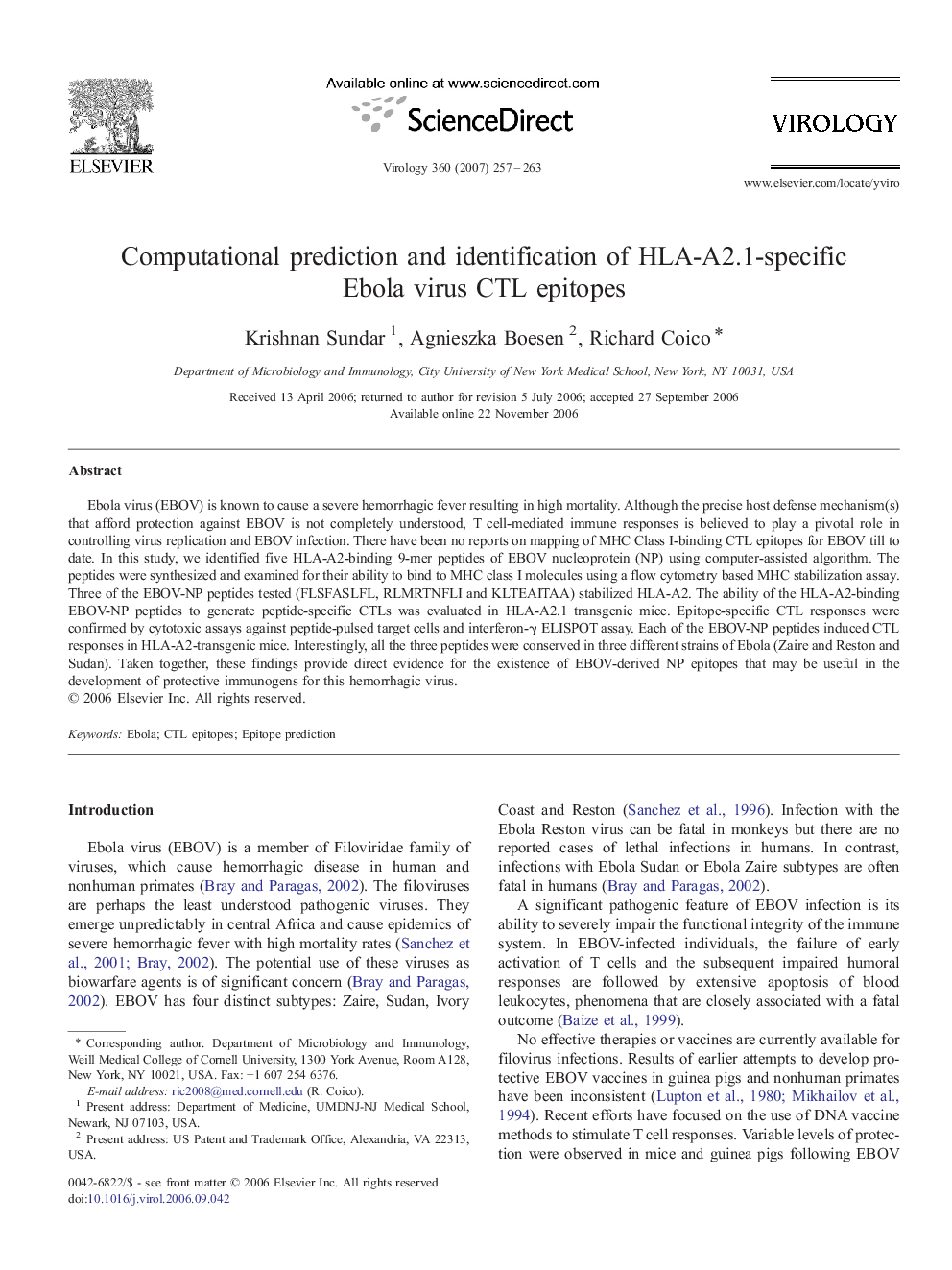| Article ID | Journal | Published Year | Pages | File Type |
|---|---|---|---|---|
| 3426978 | Virology | 2007 | 7 Pages |
Ebola virus (EBOV) is known to cause a severe hemorrhagic fever resulting in high mortality. Although the precise host defense mechanism(s) that afford protection against EBOV is not completely understood, T cell-mediated immune responses is believed to play a pivotal role in controlling virus replication and EBOV infection. There have been no reports on mapping of MHC Class I-binding CTL epitopes for EBOV till to date. In this study, we identified five HLA-A2-binding 9-mer peptides of EBOV nucleoprotein (NP) using computer-assisted algorithm. The peptides were synthesized and examined for their ability to bind to MHC class I molecules using a flow cytometry based MHC stabilization assay. Three of the EBOV-NP peptides tested (FLSFASLFL, RLMRTNFLI and KLTEAITAA) stabilized HLA-A2. The ability of the HLA-A2-binding EBOV-NP peptides to generate peptide-specific CTLs was evaluated in HLA-A2.1 transgenic mice. Epitope-specific CTL responses were confirmed by cytotoxic assays against peptide-pulsed target cells and interferon-γ ELISPOT assay. Each of the EBOV-NP peptides induced CTL responses in HLA-A2-transgenic mice. Interestingly, all the three peptides were conserved in three different strains of Ebola (Zaire and Reston and Sudan). Taken together, these findings provide direct evidence for the existence of EBOV-derived NP epitopes that may be useful in the development of protective immunogens for this hemorrhagic virus.
